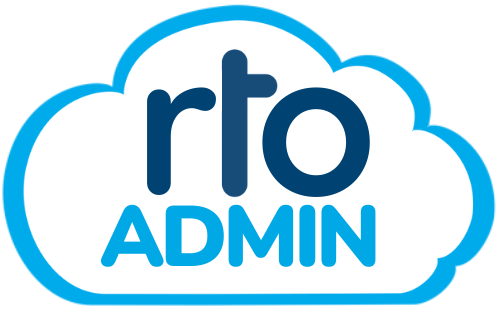Unlocking the potential of educational institutions, a Student Management System (SMS) serves as a comprehensive tool that manages everything from student data to financial transactions. Whether known as RTO Management Software or a Student Information System, an SMS streamlines administrative tasks, ensuring that you meet regulatory standards with ease.
With features like automation, student record tracking, and course management, you’ll find that an SMS not only saves you time but also boosts your institution’s efficiency and scalability. Contrary to common misconceptions, modern SMS solutions are user-friendly and provide significant cost savings, making them an invaluable asset for any educational institution. Have you ever wondered how educational institutions manage the massive amount of student data from enrollment through graduation?
If you’re involved in the administration of any educational institution, you likely understand the complexity of managing student records, ensuring compliance with regulations, and keeping up with the operational workload. This is where a Student Management System (SMS) becomes invaluable. Let’s delve into the key benefits of using an SMS for educational institutions.
What is a Student Management System (SMS)?
A Student Management System (SMS), also referred to as RTO Management Software or Student Information System, is a specialized information system designed to manage student data throughout their educational journey. From the moment a student enrolls up until they receive their final results, an SMS is there to handle every data point.
Key Functions of an SMS
An SMS tackles a variety of functions to make the administration smoother and more efficient:
- Student Profiles: Records and maintains student information like personal details, academic history, and more.
- Attendance Tracking: Monitors and logs attendance, making it easy to generate reports.
- Grades and Assessment: Manages and compiles grades, providing both students and faculty easy access to performance data.
- Course Management: Facilitates the creation, enrollment, and scheduling of courses and classes.
- Compliance with Regulations: Ensures that the educational institution remains compliant with regulatory guidelines like those set by ASQA (Australian Skills Quality Authority) and AVETMISS (Australian Vocational Education and Training Management Information Statistical Standard).
Key Features of SMS
Every comprehensive SMS offers a range of features that not only simplify the administrative workload but also enhance the overall student experience. Here are some key features that make an SMS indispensable.
Automation and Workflow
Automation is one of the standout features of an SMS. By automating routine tasks such as attendance marking, grade compilation, and report generation, an SMS helps you save time and reduce manual errors. Workflows can also be customized to fit the unique needs of your institution, ensuring that tasks are streamlined and efficient.
Student Record Tracking
An SMS makes it easy to store, access, and analyze student records. This feature allows for quick retrieval of information, whether it’s for performance analysis, attendance review, or compliance reporting.
Course Management
From creating and scheduling courses to enrolling students and managing course materials, an SMS provides a robust platform for comprehensive course management. This feature ensures that all course-related information is centralized and accessible to both students and faculty.
Invoicing and Payments
Handling financial transactions is another area where an SMS shines. It automates invoicing, payment collection, and financial reporting, reducing the administrative burden and minimizing the risk of errors.
Compliance Reporting
Generating reports for compliance with AVETMISS and CRICOS (Commonwealth Register of Institutions and Courses for Overseas Students) standards is made simple with an SMS. This ensures your institution meets all regulatory requirements without the hassle of manually compiling data.
Integration
A good SMS integrates seamlessly with other software systems such as Learning Management Systems (LMS), accounting software, and CRMs. This interconnectedness ensures that all your institutional data is harmonized, providing a more coherent operational framework.
Benefits of Using an SMS
Now that we’ve highlighted the core features of an SMS, let’s delve into the tangible benefits that make adopting an SMS a wise investment.
Compliance and Reporting
Staying compliant with educational regulations can be daunting, but an SMS simplifies this process significantly. By automatically generating compliance reports, an SMS ensures that your institution meets all necessary standards laid out by regulatory bodies like ASQA and AVETMISS.
Efficiency
Automating routine tasks such as attendance tracking, grade compilation, and report generation frees up valuable time for your staff. This increased efficiency not only reduces operational costs but also allows staff to focus on tasks that require a human touch.
Operational Management
Centralized data management ensures that all critical information is easily accessible and manageable. This makes day-to-day operations smoother, from managing student records to handling course schedules and financial transactions.
Scalability
As your institution grows, so do your operational needs. An SMS is designed to be scalable, accommodating the increasing number of students, courses, and administrative tasks without requiring a complete overhaul of the system.
Security and Data Management
An SMS provides robust security features that protect sensitive student and institutional data. This not only ensures compliance with data protection regulations but also builds trust among students and parents regarding the handling of personal information.
Misconceptions About SMS
Let’s address some common misconceptions that might be holding you back from adopting an SMS.
Seen as an Expense
Some might view an SMS as an additional expense. However, the cost-saving benefits it brings, in terms of time saved and error reduction, far outweigh the initial investment. Think of it as a long-term investment that will pay for itself over time by streamlining operations and improving efficiency.
Perceived as Difficult to Use
Modern SMS platforms are designed with user-friendliness in mind. They often come with intuitive interfaces and comprehensive support, making it easy for even non-tech-savvy users to adapt. Training and support are usually included in the package, ensuring a smooth transition and ongoing assistance.
Importance for Compliance
Educational institutions are often required to comply with various regulations and standards. An SMS makes this easy.
Recording and Reporting to NCVER
An SMS helps in recording and reporting student information to the National Centre for Vocational Education Research (NCVER). This is essential for maintaining transparency and adhering to national standards.
Ensuring Data Security
Data security is crucial in today’s digital age. An SMS ensures that all student information is securely stored, meeting the standards set by ASQA and other regulatory bodies. This reduces the risk of data breaches and ensures compliance with data protection laws.
Common Problems Without SMS
Institutions that don’t use an SMS often face a myriad of issues that could easily be avoided.
Physical or Complex Digital Records
Managing student records physically or through complex, disparate digital systems can be highly inefficient. This approach is not only time-consuming but also prone to errors and mismanagement.
High Risk of Errors in Manual Reporting
Manual reporting is often riddled with errors due to the sheer volume of data that needs to be processed. An SMS automates this task, ensuring accuracy and reliability in your reports.
Time-Consuming Administrative Tasks
Administrative tasks like scheduling, attendance tracking, and record-keeping can consume a significant portion of your staff’s time. An SMS automates these tasks, allowing your staff to focus on more impactful activities, thereby improving overall productivity.
Conclusion
In summary, a Student Management System (SMS) is a valuable investment for any educational institution. It streamlines administrative tasks, ensures compliance with regulatory standards, improves operational efficiency, and provides robust data security. By adopting an SMS, you’re not just making life easier for your administrative staff; you’re also enhancing the overall educational experience for your students.
Whether you’re dealing with ensuring compliance or improving operational efficiency, the benefits of an SMS make it a vital tool for modern educational institutions. So, why wait? Embrace the future of educational management with an SMS today!




